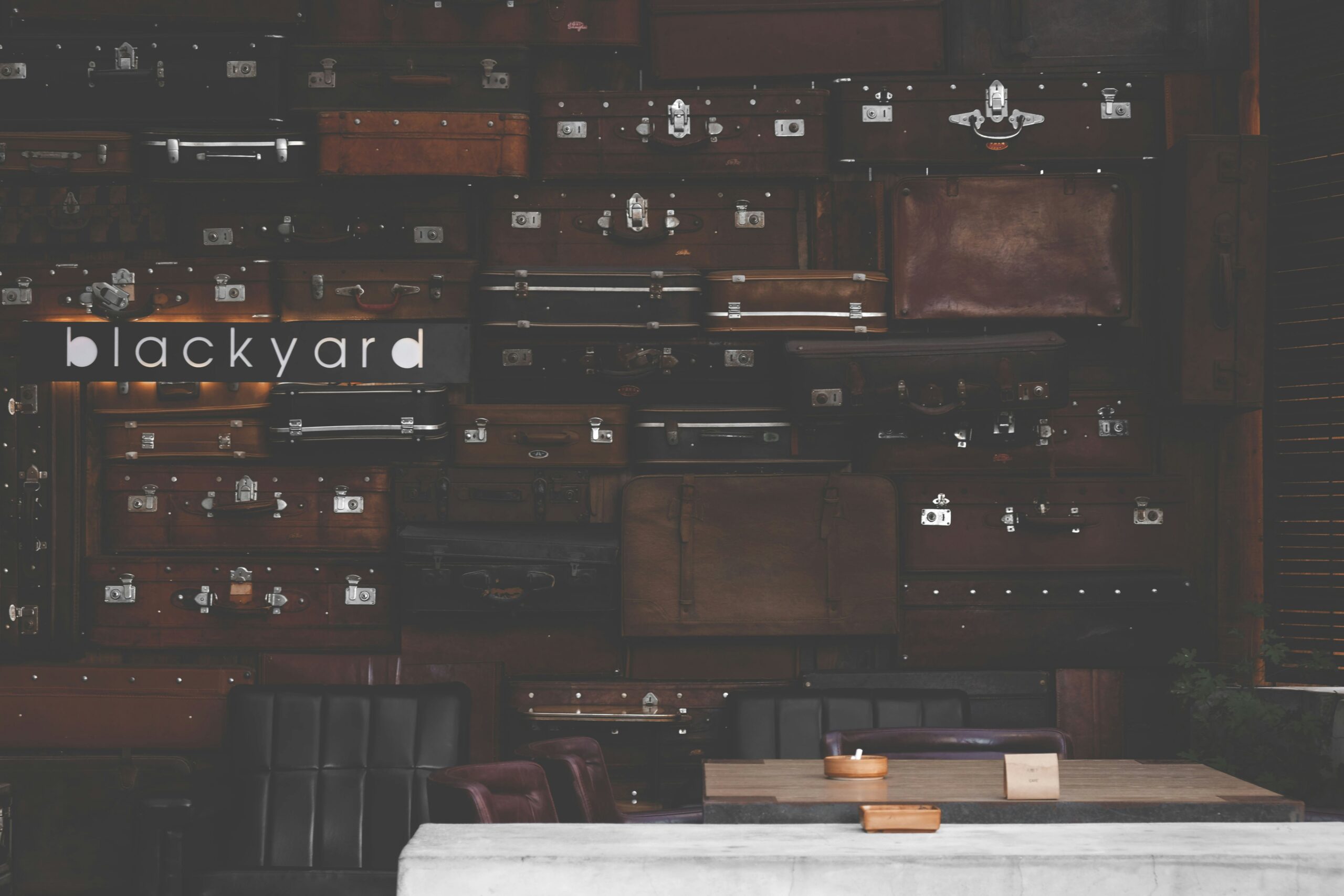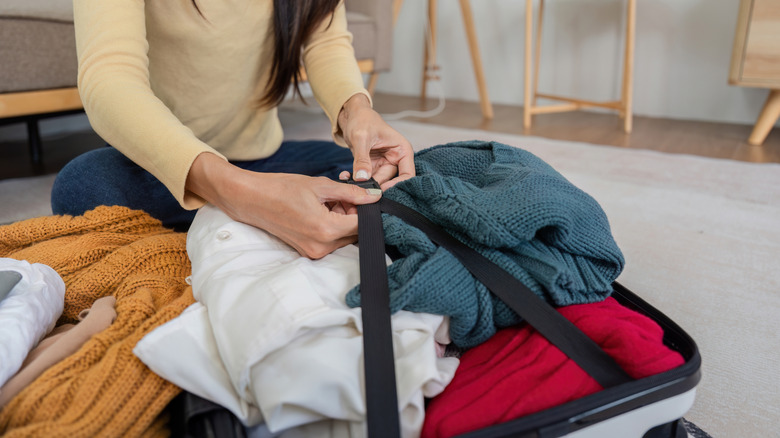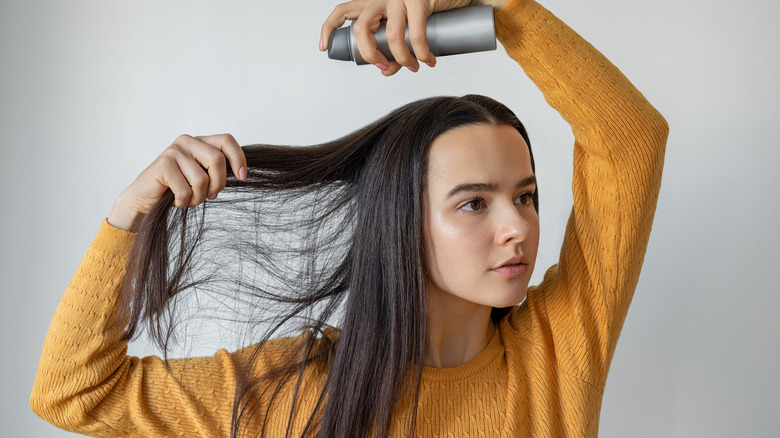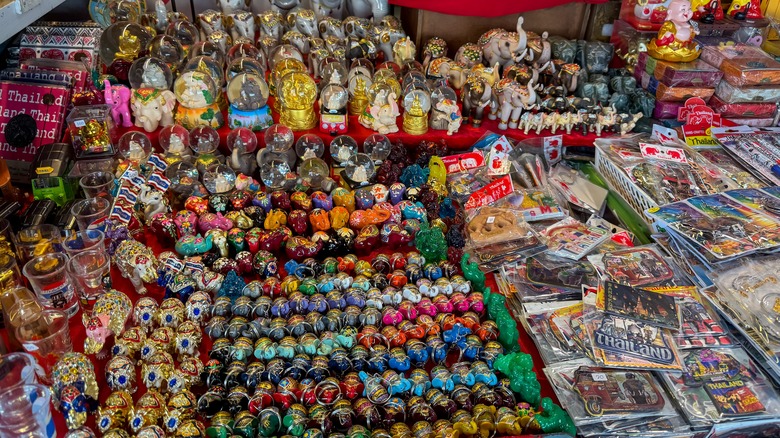BAGSMART Toiletry Bag Travel Bag with Hanging Hook, Water-resistant Makeup Cosmetic Bag Travel Organizer for Accessories, Shampoo, Full-size Container, Toiletries (Black, Medium)
$9.99 (as of April 16, 2025 04:30 GMT +00:00 - More info)Ever stood at the baggage carousel, watching a parade of identical suitcases roll by, each sporting a tiny little lock? You’re probably wondering, “Is this thing actually doing anything, or is it just for show?” I get it; you want to know if that little piece of metal is truly guarding your prized possessions. Let’s get to the bottom of this luggage lock conundrum together.

Shop These Accessories for a Comfortable Trip
Luggage Locks and Bag Security: What TSA Says
You’re entrusting your belongings to the airline, fully expecting they’ll arrive safe and sound at your destination. But does slapping a lock on your suitcase actually add a layer of protection, or are you just kidding yourself? The TSA has some thoughts, and reality might be a bit more nuanced than you think, sweet pea.
The Illusion of Security
So, you clip a TSA-approved lock onto your bag, picturing it as your trusty sidekick against airport shenanigans. I mean, it makes you feel good, right? Like you’ve taken control of the situation. But here’s the kicker: “protection,” especially when you’re jet-setting internationally or checking multiple bags, isn’t always as secure as you think.
Locked Bags: Helping, Not Guaranteeing
You need to know that just because your bag is locked, doesn’t mean it will be safer. So, what are you supposed to do?
The TSA’s Perspective
Only about 5% of checked bags get the up-close-and-personal treatment from TSA agents. While this percentage seems small, it translates to a whole mess of bags being inspected daily. And those TSA-approved locks you’re so proud of? Well, sometimes they get the boot, too.
When Locks Get the Boot
Imagine finding the perfect TSA-compliant lock, meticulously setting the code, and clipping it onto your bag with a sense of accomplishment. Now, imagine that lock getting snipped off because the TSA agent couldn’t find their master key or they were in a hurry during a holiday rush. It’s annoying, a waste of time, and let’s face it, kinda deflating.
Reasons for Lock Removal:
| Reason | Description |
|---|---|
| Lost Master Key | TSA agents can’t locate the universal key needed to open the lock. |
| Time Constraints | During peak travel times, agents might opt to cut locks for the sake of efficiency. |
| Inspection Necessity | If your bag requires a closer look, agents may need to bypass the lock to access the contents quickly. |
The Master Key Debacle
In 2014, some bright spark decided to share photos of the TSA’s universal master keys online. I know. Can you even believe it? This means anyone with a 3D printer could potentially make their own key. Suddenly, that “secure” lock feels about as effective as a screen door on a submarine.
Vulnerabilities, Vulnerabilities Everywhere
Most combination locks can be cracked with a little trial and error. And even zippers? Those can be breached with a basic ballpoint pen. Suddenly, your fortress of solitude looks more like a sandcastle at high tide.
Common Luggage Lock Vulnerabilities:
| Vulnerability | Description |
|---|---|
| Combination Cracking | Many combination locks can be opened by systematically trying different combinations. |
| Zipper Breach | Zippers can be punctured and reopened with a pen, allowing access into the bag. |
| 3D Printed Keys | The publication of TSA master key designs allows for the creation of unauthorized keys. |
| Lock Picking | Skilled individuals can pick even high-quality locks with the right tools and techniques. |
The Silver Lining: Deterrence
All is not lost, my dear! A lock on your bag isn’t entirely useless. Locked bags can still give pause to opportunistic thieves I mean who wants to work for it? I know I sure don’t
Benefits of Using Luggage Locks:
| Benefit | Description |
|---|---|
| Opportunistic Theft Deterrent | Locks can discourage casual thieves who are looking for easy targets. |
| Accidental Opening Prevention | Locks can help prevent bags from accidentally opening during transit on conveyor belts, as they are tossed and turned. |
Keeping Honest People Honest
I mean, let’s be real. A determined thief with the right tools will get into your bag no matter what. But a lock can deter those casual pilferers, you know, the ones looking for an easy score at the baggage claim.
Keeping Your Bag Intact
Locks can also prevent your bag from bursting open on those crazy conveyor belts. Think of it as a little insurance against accidental unzipping.

Shop These Accessories for a Comfortable Trip
Making Smart Choices
You need to lower expectations, sister. Don’t depend on your TSA lock to be an impenetrable shield. Keep your essential, valuable, and fragile items in your carry-on where you can keep a close eye on them.
What the Experts Actually Say
To decide if a luggage lock meets your particular needs and if it’s worth the money, you need to listen to your local expert, which is why I’m here!
Diversify Your Travel Security
There are tons of options available to add layers of deterrence for theft, damage, and privacy. Consider the details of your luggage and how it will be stored when traveling to plan the best overall security process.
Know Your Locks: Types and Tech
A combination lock can be reset with any code, so pick something obvious to you, and less obvious to others. Some suitcases have built-in digital locks which can be more easily disguised or offer an auto-lock function.
Types of Luggage Locks:
| Lock Type | Description | Advantages | Disadvantages |
|---|---|---|---|
| Combination Lock | Opens with a preset combination of numbers. | Easy to use, no key needed. | Can be cracked with trial and error. |
| Key Lock | Opens with a physical key. | Can be more secure than combination locks. | Requires carrying a key, which can be lost. |
| TSA-Approved Lock | Can be opened by TSA agents using a master key. | Allows TSA to inspect bags without cutting the lock. | Master keys can be compromised. |
| Cable Lock | Uses a flexible cable to secure zippers or multiple bags together. | Versatile, can be used in various ways. | Cable can be cut with the right tools. |
| Smart Lock | Uses Bluetooth or fingerprint technology to lock and unlock. | Offers advanced security features, such as tamper alerts. | Requires batteries, can be susceptible to technical issues. |
Protect Your Privacy with Additional Measures
Bags can be tagged and tracked throughout air transportation. You can hide personal information when tagging, and consider removing tags from previous trips, which help thieves guess who owns what.
Consider Your Destination
Is baggage theft common in your destination? What are the airport policies and infrastructure? If you’re going to a high-traffic, high-theft area, then you definitely increase the chances of your bag being at risk.
Other Ways You Can Protect Your Luggage
You need to know that theft deterrance starts before you pack your bags and think about locks!
Before You Leave
When you book your flight, consider details that may contribute to your luggage safety. Connecting flights and layovers mean that your bags will be handled more often, increasing risk of damage or theft. Times of heavy traffic like holiday seasons, are also times when baggage handling is in high demand.
Make sure your luggage doesn’t stand out from the crowd and keep your personal data off outside tags, if possible.
Theft Deterance Tips:
| Prevention Tactic | Description |
|---|---|
| Use a bag cover | Using a unique or personalized bag cover can help deter theft by making your luggage more easily identifiable and less appealing to steal. |
| Connecting flights can increase the risk of theft because bags are handled more often with changing planes. | Less personal data deters thieves and provides identity protection. |
Pack Smart and Strategically
Keep valuables on your person whenever possible. Even if your bag is not stolen, it could get lost or be delayed. If you must put valuables in your bags, hide them under layers of clothes, and distribute them strategically.
Inspect Your Belongings ASAP
A lost item claim is easier to place if you immediately discover an item has been removed from your bag. You’ll want to make sure it is well-documented as well.
Additional Tips Everyone Should Know
You need to avoid common mishaps and pitfalls! If everyone does their part, travel is safer for everyone.
Consider Insurance
Most airlines carry insurance on lost or damaged bags, but that may not fully cover the personal value of your belongings. Talk to your insurance provider to get a quote for sufficient levels of coverage for travel and luggage damages.
Get reimbursed for necessary costs
Airlines may owe you money if your luggage has been affected! Make sure you advocate for your needs and are diligent about saving documents.
Fill out Detailed Reports
The more descriptive you are about your bag and its contents, the more likely that authorities will be able to assist. Provide receipts, photos, and information to help them understand.
Final Thoughts
So, do luggage locks improve bag security? The answer is complicated. They can offer a small measure of deterrence and prevent accidental openings, but they’re not foolproof. You can rest assured that putting the right system of checks and balances in place will make you far more secure than any luggage lock. Remember to keep your valuables secure, be aware of your surroundings, and don’t rely solely on that little piece of metal to protect your stuff.







